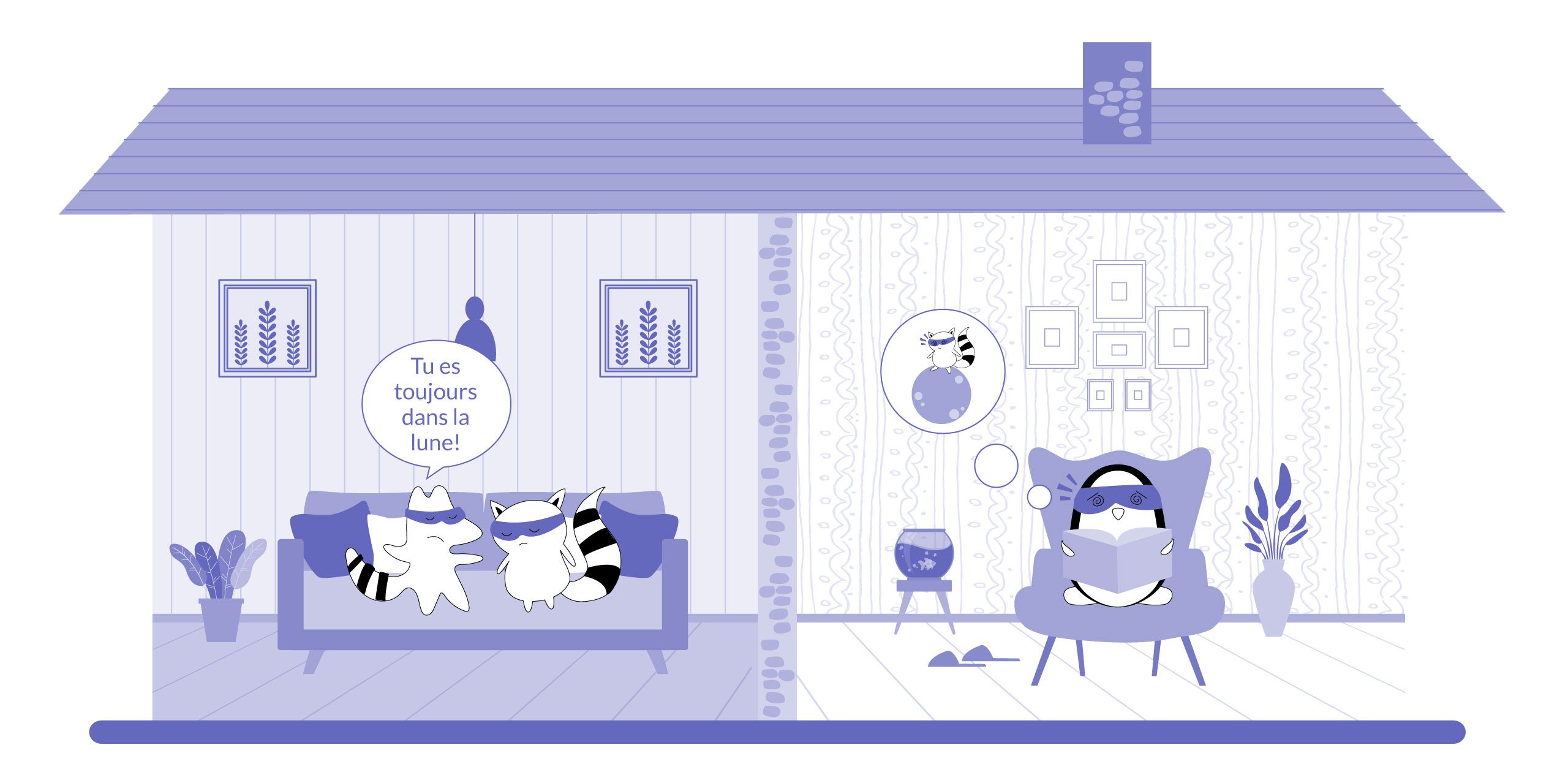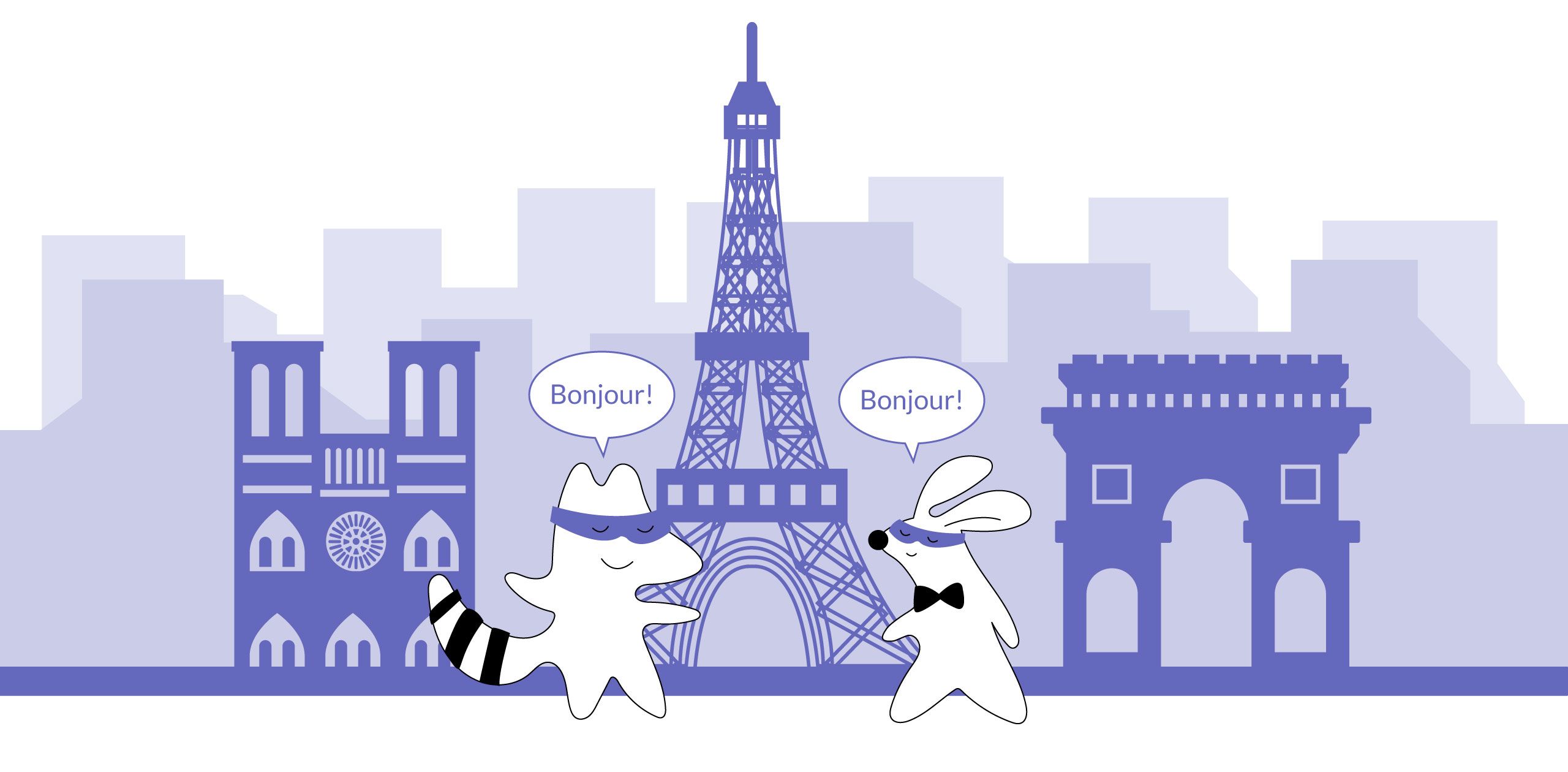Dating can be tricky enough in your native tongue, so imagine how daunting it might seem when trying to date someone in a foreign language! But, don't worry – with a little bit of preparation, you'll be able to navigate the waters (or should we say l'amour?) just fine.
In this article, we'll give you a crash course in French dating vocabulary, as well as some tips on how to go about courtship in France. Explore the most common French dating words and traditions with us – and whether you're looking for love or just want to brush up on your French skills, read on!
Dating in France: An Overview
When it comes to dating in France, there are a few things you need to know. For starters, the French tend to be more casual than Americans when it comes to courtship – so don't be surprised if your relationship doesn’t always succumb to the dating traditions you might be used to.
Secondly, French culture places a strong emphasis on tradition, so you can expect some old-fashioned dating rituals to still be in practice. In addition, the French take their love lives (and food) very seriously, so don't be surprised if, after a few meetings, the person you're dating expects you to know your way around a Michelin-starred restaurant.
However, the French also often don’t like making their dates obviously romantic and try to incorporate finding love into their social lives. Very often, first dates won’t necessarily be just you and your date going out – you can often meet someone’s friends or go bar crawling at first, and walks along the Seine might (but not necessarily will) follow a bit later.
Finally, if you're lucky enough to be dating a French person, you can expect to hear some of the most beautiful romantic words and phrases in the world. Remember that French culture is renowned for its romance, so if you go out with someone, you can expect to be wooed by your date with all of their Gallic charm.
So, be prepared: learn some necessary French words right now.
Flirting in French
Starting a conversation:
Native
Translation
Excuse-moi, tu as l’heure ?
Excuse me, do you have the time?
Pardon, tu aurais du feu/une cigarette ?/ [Sorry, would you have a lighter
Sorry, would you have a lighter/ a smoke (yep, a lot of people smoke in France)
Tu es avec quelqu’un ?
Are you with someone ?
Et tu es célibataire ?
Are you in a relationship?
Je peux t’offrir un verre ?
May I buy you a drink ?
Tu viens souvent ici ?
Do you come here often ?
On peut se tutoyer?
Can we move to the “tu” basis, can we speak more informally?
Saying Compliments
Native
Translation
Tu es beau
You are beautiful (masculine form)
Tu es belle
You are beautiful (feminine form)
Tu es très jolie
You are very pretty (to a woman)
T’es canon, toi !
You’re hot!
Tu es radieuse ce soir
You look radiant tonight
Cette couleur te va à ravir
This color looks great on you
Ton sourire est contagieux
Your smile is contagious
J’aime le son de ta voix
I like the sound of your voice
Comme tu es amusante
You are so fun (can put any other descriptive adjective here)
T’as d’beaux yeux, tu sais ?
You know you have gorgeous eyes?
J’ai eu un coup de foudre !
I was struck by lightning!
Je t’apprécie.
I like you (romantically)
Asking Someone Out
Native
Translation
Tu veux (aller) boire un verre ?
Would you like (to go for) a drink?
T’es libre ce soir ?
Are you free tonight?
Tu veux aller faire un tour ?
Do you want to get out of here ?
On pourrait peut être aller au cinéma | au restaurant | faire une balade…
Maybe we could go to the movies| to a restaurant | take a walk
Tu veux sortir avec moi ?
Would you like to go out with me?
*Please note that sortir here can be used both romantically and socially, depending on the context.
Native
Translation
Tu es libre pour le dîner samedi ?
Are you free for dinner on Saturday?
Tu me donnes ton numéro ?
Could you give me your phone number ?
On peut peut-être échanger nos numéros ?
Maybe we can exchange phone numbers?
Tu veux être ma (petite) copine | mon (petit) copain ?
Would you like to be my girlfriend | boyfriend?
Here, always look at the context: “copins” and “copines” often can mean your male or female friends, but usually, “ma copin(e)” refers to someone’s romantic partner.
To say “a boyfriend” or “a girlfriend” you can also use the common phrases “petit ami” and “petite amie,” but note that these are becoming a bit old now.
Vocabulary Related to Being in a Relationship
Native
Translation
Mon partenaire, ma partenaire
My partner
Un compagnon, une compagne
My partner (often used for long-term adult relationships
Mon fiancé, ma fiancée
My fiancé, fiancée
Mon mari, ma femme
My husband, my wife
Je t’aime
I love you
Don’t confuse it for “je t’aime bien,” which means “I like you (as a friend)”.
Native
Translation
Je t’adore
I adore you
Tu me manques
I miss you
Embrasse-moi!
Kiss me!
Check other ways to express your love in French here.
You might also take a look at some common words of endearment (you can find a bigger list here):
Native
Translation
Mon amour
My love
Mon chéri, ma chérie
My dear
Mon beau, ma belle
My beautiful
Common Dating Vocabulary
Native
Translation
Sortir avec quelqu’un | être en couple
To date someone officially
S’embrasser
To kiss
Tomber amoureux, amoureuse
To fall in love
Tromper
To cheat
Rompre, casser, larguer
To break up
Se marier
To marry
PACS, pacte civil de solidarité
civil unions
Divorcer, séparer
To get divorced, to get separated
Se remarier
To remarry
Dating in French: Slang
Native
Translation
Draguer
To seduce, to flirt (very casual)
Un dragueur
A seducer
La drague
Seduction
Séduire
To seduce (less casual)
Un séducteur, une séductrice
A seducer
La séduction
Seduction
Flirter
To flirt
Un beau-parleur
Someone who speaks nicely to seduce you
Aborder, accoster quelqu’un
To address someone in order to flirt
Un macho
A macho guy
Une pétasse
A skank
Un vrai queutard
A real womanizer
Kiffer
Really like someone
Aller boire un verre
To go for a drink
Avoir un rencard
to go on a date
Se prendre un rateau
To get rejected
Poser un lapin
To stand someone up
Coucher avec quelqu’un
To sleep with someone
Pécho
To hook up
Enchaîner les rencards
To date around, to date multiple people
Tu t’enflammes, tu t’emballes
You get carried away (They are just not that into you)
French Dating Etiquette
However, knowing just a few words is not enough to understand the smallest nuances of French dating culture. There are some peculiarities, customs, and traditions that might cause you trouble.
So, if you’re planning to visit Paris or already live in France and want to boost your romantic life, here are some things that should help:
Meeting People
The French won’t ask out someone they don’t know well. The concept of blind dates doesn’t even exist in French culture, and speed dating is not common – most often, people meet their romantic partners through friends. This is especially true for young people. However, you can also meet people at local events, meetup groups, or through online dating apps.
There are lots of dating websites and apps in France, and they’re becoming increasingly popular. However, if you want to meet someone online, it’s important to be aware that there are some differences between French and American dating websites.
For example, on most French dating websites, it’s necessary to first have a somewhat long exchange of messages before asking someone out. Moreover, French women ask men on dates as often as the opposite.
A Guide for the First Date
In France, the first date is usually quite casual. It’s common for people to meet in a public place like a restaurant, a café, or a park. Some people also choose specific activities for their first dates, such as going together to a comedy show, movie, museum, or even less conventional places like cooking classes.
Talking openly about money is considered vulgar, so splitting the bill is not common. Usually, the man will pay for dinner on the first date, and the woman might do it on the second one.
In France, both men and women tend to dress quite casually for the first date. Look at it like at another regular day: wear what you love.
Remember: the first date in France is always a way to get to know a person and to develop a relationship before becoming more involved. There’s no romantic protocol like in the US, where you usually know what happens on the first, second, or third date. So, don’t expect any romantic gestures, and focus on getting to know each other better.
In French culture, just like in German, it’s important to keep your distance and respect each other’s boundaries. Because of that, French people can often seem cold or unfriendly on the first date – but don’t worry, this doesn’t mean they’re not interested.
The French generally take time to reveal their emotions, and they might turn up a bit late for a date or not text you back right away. Take this as something normal, and also try to stay a bit mysterious – remember to save something for the next time you meet.
Becoming Official
When two people start dating in France, there is no set process or timeline for becoming official. The French prefer to give the relationship time to evolve, and the process of getting to know each other can vary from couple to couple. Some might decide to go exclusive almost right away, while others can take even a few months to reach that point.
There is no specific definition of "being official" in France – it's more about the level of commitment that both parties feel comfortable with. You can have an official talk about that, but very often, there’s no need.
The relationship is considered serious after you mean each other’s family, but saying “I love you” is not seen as a milestone – it can happen even on the first date (although many people will say it within 2 months of the relationship or later).
Bottom Line
Dating in French can be very different than dating in the US – but that’s what is interesting about it. There’s no need to rush into things, and you can take all the time you want to get to know someone. Just keep in mind that people might not always express their emotions as openly as you’re used to. And when it comes to first dates, remember that casual is key.
So, are you ready to go out and start looking for the one (or even for some fun)? Then don’t wait – get out there and practice what you’ve learned today!









